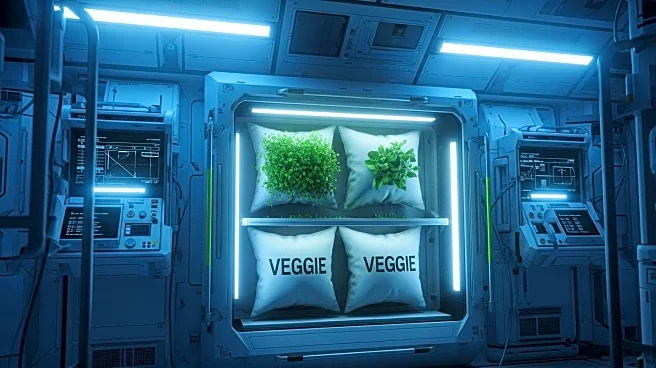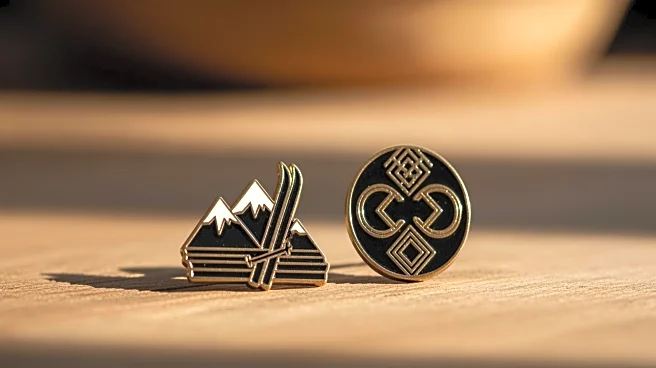What's Happening?
NASA's Crew-11 astronauts have embarked on a new chapter in space farming with the VEG-03 experiments aboard the International Space Station. The initiative involves planting seed pillows containing Wasabi mustard greens, Red Russian Kale, and Dragoon lettuce inside Veggie, a chamber designed to support plant growth in microgravity. The chamber uses LED lights to provide the necessary spectrum for plant growth, while flexible bellows create a semi-controlled environment. Astronauts will monitor the plants, add water, and document growth, consuming some produce and freezing samples for Earth-based analysis. This experiment aims to enhance astronaut nutrition and morale during long missions, while also validating crops for future Moon and Mars missions.
Why It's Important?
The VEG-03 experiment is crucial for long-duration space missions, as it seeks to provide astronauts with fresh food options, improving their diet and psychological well-being. The ability to grow food in space is essential for missions beyond Earth, such as those to the Moon and Mars, where resupply from Earth is not feasible. Additionally, the techniques developed for space agriculture could have applications on Earth, particularly in indoor crop cultivation and horticultural therapy programs. This research not only supports space exploration but also offers potential benefits for agricultural practices and therapeutic gardening on Earth.
What's Next?
NASA plans to continue validating various crops for space missions, giving astronauts more control over their diet. The success of these experiments could lead to more diverse and sustainable food options for future space travelers. On Earth, the insights gained from space agriculture may influence indoor farming techniques and therapeutic gardening practices, providing new opportunities for individuals with limited access to traditional gardening methods.
Beyond the Headlines
The VEG-03 experiment highlights the intersection of space exploration and agricultural innovation. It underscores the importance of developing sustainable food systems for long-term space missions, while also offering potential solutions for food security challenges on Earth. The psychological benefits of gardening in space could also inform therapeutic practices, enhancing the quality of life for astronauts and individuals on Earth.









